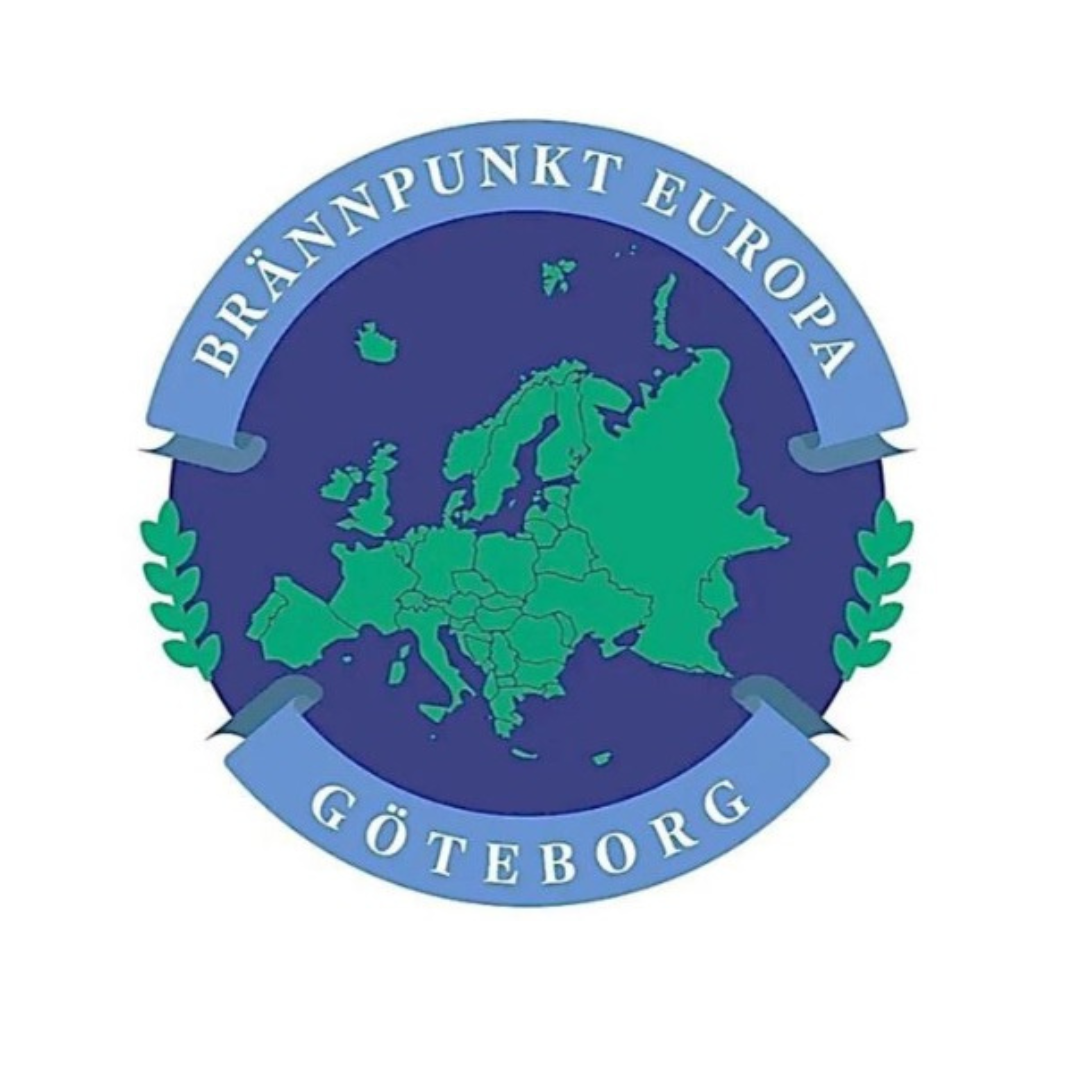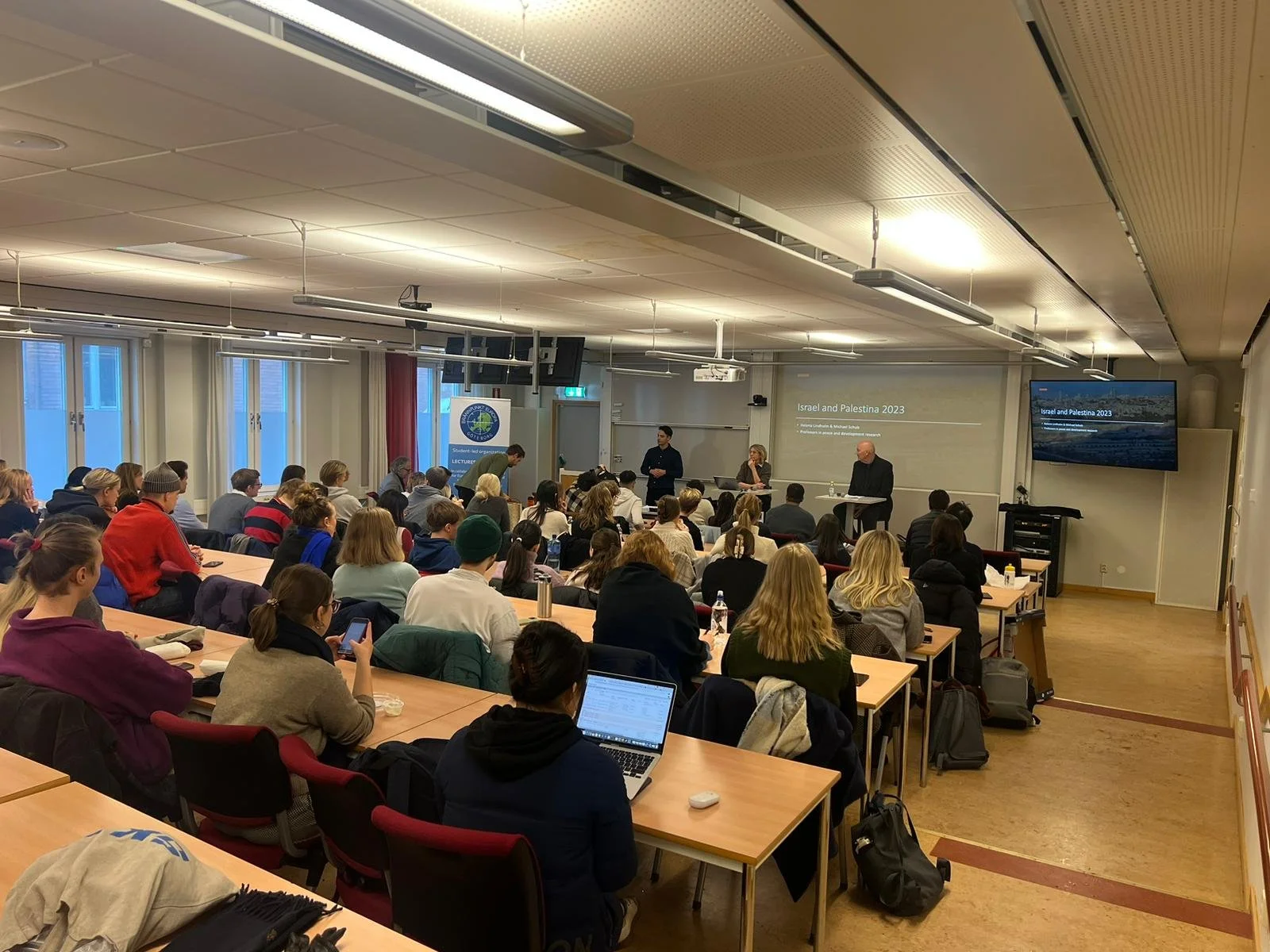Unraveling Complexities: Insights from the Brännpunkt Lecture on the Israel and Palestine Conflict
The Brännpunkt lecture on the Israel and Palestine conflict, held on December 5th, provided a comprehensive overview of the historical context, current dynamics, and international responses to this enduring crisis. Jonathan, the moderator, introduced the panelists, Professor Helena Lindholm and Professor Michael Schulz, both renowned figures in peace and development research with a specialization in the Middle East.
Helena Lindholm initiated the discussion by underscoring the protracted nature of the conflict, spanning a century, and particularly highlighting the last 30 years since the Oslo Agreement. Characterizing the region as a "pressure cooker," she presented a map of current conflict areas, shedding light on the intensification of tensions in the autumn of 2022.
Professor Michael Schulz, drawing on his 43 years of experience in the region, provided a nuanced perspective on the conflict. Also using the metaphor of a "pressure cooker," he recounted personal experiences of civil unrest and delved into the emergence of Hamas. Michael traced the group's roots to the 1990s, its electoral success in 2006, and the subsequent erosion of support for the Oslo Agreement. Importantly, he highlighted a current lack of understanding between leaders and the planning of the October 7th attack by Hamas since 2021.
The discussion then turned to the international response, with a focus on the European Union. Michael highlighted the EU's historical support for Palestinians in the 80s, contrasting it with a delayed response from the U.S. He underscored the EU's initial condemnation of Hamas attacks, which later evolved into a less clear position, often aligning with the U.S. Helena further discussed Sweden's evolving stance, noting a shift towards a more pro-Israeli government since November 2022.
Both panelists emphasized the mediatized nature of the conflict, with Helena calling for disclaimers on reports not originating from Gaza. Citing examples of trustworthy media corporations, such as BBC, CNN, Al-Jazeera, Middle East Eye, Al-Shababka, and The New York Times, they stressed the importance of reliable information dissemination.
The audience engaged in a thought-provoking Q&A session. Michael cautioned against the prevalence of propaganda and fake news, urging careful interpretation. Representation for Palestinians not affiliated with Hamas was discussed, with the PLO identified as the legitimate representative. The impact of European governments banning pro-Palestine demonstrations was noted, causing frustration among Palestinians.
Hope for a Solution
Regarding the prospects of a two-state solution, Michael highlighted a paradoxical reality, with the Israeli right-wing government not actively pursuing it. Helena suggested two potential solutions: a two-state approach or a single peaceful state, emphasizing the crucial role of the international community in charting a path forward.
The Brännpunkt lecture provided a comprehensive exploration of the Israel and Palestine conflict, offering historical insights, current analyses, and reflections on international responses. As the lecture concluded, the call to action resonated — an urgent plea for the international community to reevaluate potential solutions in the face of the complex and enduring nature of this deeply entrenched conflict.

